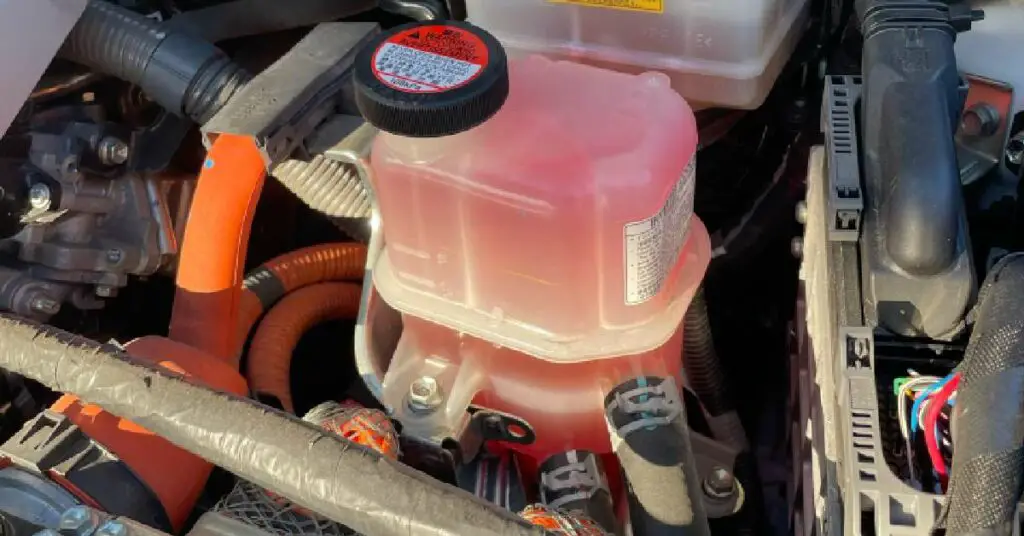
Hello, fellow car enthusiasts! Today, we’re diving into the world of the Toyota Prius, a fan-favorite hybrid that has made quite the name for itself. Specifically, we’ll be exploring how to tell if your Prius inverter is bad, along with some juicy details about this eco-friendly ride. So, buckle up and let’s hit the road!
The Prius: A Quick Overview
Before we jump into the nitty-gritty of inverters, let’s take a moment to appreciate what the Prius brings to the table. This sleek, modern hybrid has been an iconic game-changer for environmentally conscious drivers. With its impressive fuel efficiency, spacious interior, and forward-thinking design, the Prius is the go-to choice for those looking to reduce their carbon footprint without compromising on style.
The Hybrid System: How It All Works
In order to understand how to spot a bad inverter in your Prius, it’s important to have a basic grasp of how its hybrid system functions. In a nutshell, the Prius uses a combination of a gasoline engine and an electric motor to power the vehicle. This dual-power setup allows the car to switch between the two sources as needed, resulting in optimal fuel efficiency.
But how does this magic happen? That’s where the inverter comes into play! This vital component converts the high-voltage direct current (DC) produced by the battery into alternating current (AC) that powers the electric motor. Additionally, the inverter is responsible for converting excess energy generated by the electric motor back into DC to recharge the battery.
How to Tell If Your Prius Inverter Is Bad
Now that we’re all caught up, let’s dive into the main topic: detecting a bad inverter in your Prius. A faulty inverter can lead to a myriad of issues, from decreased fuel efficiency to complete vehicle shutdown. To help you stay ahead of the game, here are some telltale signs that your inverter might be on the fritz:
1. Warning Lights on the Dashboard
One of the most obvious signs that something is amiss with your inverter is the appearance of warning lights on your dashboard. In the Prius, you may see the “Check Engine” light, the “Hybrid System Warning” light, or the “Master Warning” light, depending on the model. If you notice any of these warning lights, it’s crucial to get your vehicle checked by a professional as soon as possible.
2. Decreased Fuel Efficiency
Remember how we talked about the inverter being responsible for optimizing fuel efficiency? Well, when it’s not functioning properly, you’ll likely notice a drop in your Prius’ gas mileage. Keep an eye on your fuel consumption, and if you see it plummeting without an obvious reason, the inverter could be the culprit.
3. Loss of Power or Acceleration
A bad inverter may also cause your Prius to lose power or struggle with acceleration. This can manifest as a sluggish response when you hit the gas pedal or a complete lack of power in the electric motor. If you find yourself experiencing these issues, it’s time to have your inverter checked out.
4. Unusual Noises
No one knows your car better than you do, so if you hear strange noises coming from your Prius, it’s worth paying attention. A failing inverter can produce a high-pitched whining sound or a loud buzzing noise. If you notice any unusual sounds, don’t ignore them – it could be your inverter sending out an SOS.
5. Vehicle Shutdown
In the worst-case scenario, a bad inverter can cause your Prius to shut down completely. This can happen while driving or when trying to start the car, as the inverter is essential for the vehicle’s operation. If you experience a sudden shutdown, it’s crucial to get your car to a professional immediately, as it may be an indication of a serious problem with the inverter.
What to Do If You Suspect a Bad Inverter
So, you’ve noticed one or more of these warning signs and think your Prius inverter might be bad. What’s the next step? The answer is simple: don’t delay in seeking help from a qualified mechanic or technician. The inverter is a complex component, and attempting a DIY fix could cause more harm than good, not to mention voiding your warranty.
A professional technician with experience working on hybrid vehicles will have the necessary tools and expertise to diagnose and repair your inverter issue. They’ll be able to determine whether the inverter needs to be repaired or replaced, and get your Prius back to running like a well-oiled machine in no time.
Keeping Your Prius in Tip-Top Shape
Prevention is always better than cure, and that holds true when it comes to maintaining your Prius inverter. Here are some tips for keeping your inverter (and the rest of your hybrid system) in excellent condition:
- Regular Maintenance: Just like any other car, your Prius needs routine maintenance to stay in peak condition. Make sure you follow the recommended maintenance schedule outlined in your owner’s manual and have your vehicle inspected by a professional regularly.
- Battery Care: Your hybrid battery is the heart of your Prius, so take good care of it. Avoid extreme temperatures when possible, and consider having your battery checked annually to ensure it’s in good health.
- Drive Responsibly: Aggressive driving can put unnecessary stress on your inverter and other vehicle components. Drive smoothly and avoid sudden acceleration or braking to prolong the life of your Prius’ hybrid system.
Wrapping Up
The Toyota Prius is an incredible piece of automotive technology, and a big part of its charm lies in its eco-friendly, efficient hybrid system. By learning how to spot the signs of a bad inverter and seeking professional help when needed, you can keep your Prius running like a dream for years to come.
Remember, a well-maintained Prius is a happy Prius, and with a little bit of care and attention, you’ll be cruising down the road in your trusty hybrid, knowing you’re doing your part for the environment and your wallet.

As a seasoned mechanic and proud owner of three successful car workshops, I’ve dedicated my life to helping people just like you overcome their everyday automotive challenges. I created this website as a labor of love, with a simple mission: to make car maintenance and repairs more accessible and approachable for the “average joe.”
